CSDE Research Scientist Deven Hamilton Develops Survey Modules and Agent-based Network Models
|
CSDE Senior Research Scientist Deven Hamilton provides direct support for the development of survey modules to collect egocentric network data and sexual behaviour data that will be fielded as part of an upcoming RCT. These data, in conjunction with the RCT results, will serve as the empirical basis for an agent-based epidemic model to estimate the health and economic impact of scaling up WHO-recommended STI PPT and doxyPEP in Kenya. Hamilton is also responsible for building the agent-based network model and running the epidemic simulations in support of the overall project aims.
This work is part of a recently approved R01 grant (A187468) developed by CSDE Affiliate Susan M. Graham, Professor of Global Health and Medicine (PI), Hamilton, and colleagues. This study’s goal is to evaluate the effectiveness of two RCT interventions on Gonorrhea: WHO-recommended periodic presumptive treatment (PPT) and doxy-Post Exposure Prophylaxis (PEP), compared to standard syndromic treatment for reducing STI burden among Kenyan MSM. This project will also assess the acceptability, feasibility, and safety of implementing WHO-recommended PPT and doxy-PEP compared to standard care among providers and patients.
To arrange a consulting appointment with Deven Hamilton or any of CSDE’s scientific support staff, please use the CSDE Science Core Consultation Request form.
(read more)
|
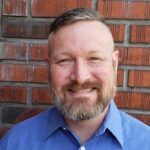 |
Arar Publishes Article on “Humanitarian Fiction” in Refugee Hosting Practices
|
Refugee studies research has typically identified “hosts” as being distinct and opposite from refugees, but recent scholarship has brought this typology into question. In a recent study in the Journal of Humanitarian Affairs, CSDE Affiliate Rawan Arar (Law, Societies, and Justice) critically examines the ‘host’ label within refugee studies by considering multiple scales of analysis. The study shows how individuals confront the refugee/host binary in their daily lives, and introduces the concept of humanitarian fiction to explain the limits of previously used definitions. Read the study here.
(read more)
|
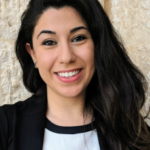 |
Tram Receives the 2024 CFAR New Investigator Award
|
CSDE Affiliate Khai Hoan Tram (Infectious Disease, UW Medicine) recently won the UW/Fred Hutch Center for AIDS Research’s 2024 CFAR New Investigator Award! The purpose of this award is to encourage early-stage investigators (at a senior stage of training or recently independent) to conduct independent research, acquire preliminary data to use for subsequent grant submissions, publish, receive mentorship, and write one or more grants to obtain funding to continue their HIV research careers. Dr. Tram’s research uses the tools of epidemiology, geospatial analysis, and infectious diseases modeling to inform data-driven, precision public health interventions against the TB and HIV epidemics. Over the past few years, Dr. Tram’s research program has centered on studying the relationship between human mobility and infectious disease transmission. The collaboration leading to Dr. Tram's CFAR award initially started with a CSDE Population Research Planning Grant that funded a research planning trip to South Africa in 2023. Congratulations on receiving this award Dr. Tram and we look forward to learning more about your research!
(read more)
|
 |
Kunkle, Tennyson, Wander, Duncan and Eisenberg Examine Associations between ADHD-associated Allele and Nutrition and Economic Status in Northern Kenyan Rendille Children
|
Around 11% of US children are diagnosed with attention-deficit/hyperactivity disorder (ADHD). A previous study from CSDE Affiliate Dan Eisenberg (Anthropology) showed that the ADHD-associated 7R allele of the gene encoding the D(4) dopamine receptor (DRD4) had a positive effect on the nutritional status of nomadic adult Ariaal men and a negative effect on settled adult men. This suggests that those with ADHD might have environmentally contingent benefits which are more apparent in nomadic contexts. In a pre-registered paper recently published in the American Journal of Human Biology, joint first authors Amanda Kunkle (PhD Candidate, Anthropology) and CSDE alumnus Robert Tennyson along with CSDE Affiliates Dan Eisenberg (Anthropology) and Bettina Shell-Duncan (Anthropology), and CSDE alumna Katherine Wander (Binghamton University) were unable to replicate this previous finding in a sample of children from a closely related population, the Rendille, but found a positive association between DRD4 7R and household economic status. Read the full story here.
(read more)
|
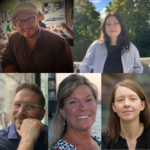 |
Taylor Article Examines Temporalities of Dementia
|
The clock-drawing test is a common tool for assessing cognitive function, that offers an entry point for considering how time itself is experienced in the context of dementia care. In a recent article published in the Journal of the Royal Anthropological Institute entitled “The clock-drawing test: reading temporalities of dementia from clinical chart notes,” CSDE External Affiliate Janelle Taylor (University of Toronto) explores how clinical interactions reflect broader social and historical forces shaping time, from cultural expectations of aging to shifts in labor and medicine. The article draws on analysis of medical records of three older adults in Seattle who developed dementia without close family. It considers how dementia reshapes our understanding of time, and how memory and temporality alike are deeply social and embodied. Read the full article here.
(read more)
|
 |
McElroy and colleagues to host “Mapping Digital Worlds from Below” (5/1/25)
|
On May 1, 2025, CSDE Affiliate Erin McElroy and colleagues are hosting a conference with the Simpson Center for the Humanities on “Political Software: Mapping Digital Worlds From Below”. This conference will focus on software and countermaps primarily designed for political action with social, environmental, and land justice movements. The intent of this conference is to bring together organizers, researchers, educators, and technologists questioning the interdependencies between digital infrastructures, software code, and emancipatory spatial futures. For information, visit this link or the event website.
(read more)
|
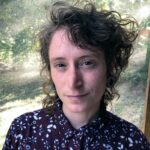 |
|
|
CSDE Science Core – Upcoming Workshops (4/24/25)
- On April 24 (10:00am-11:30am), you’re invited to a webinar that will provide a basic introduction to Agent-Based Modeling (ABM). Register here to attend.
- Also on April 24 (12:30pm-1:30pm), you’re invited to the NWFSRDC Brown Bag: Exploring the Potential of the Longitudinal Employer-Household Dynamics Data webinar. Register here to attend.
These webinars are one of several workshops offered each quarter. CSDE offers workshops on data sources, statistical and biomarker methodology, introductions to analysis programs, and more, all given by CSDE staff and faculty affiliates. These workshops are open to all researchers (faculty, staff, postdocs, graduate students, and non-UW CSDE external affiliates). Check out the Spring Quarter workshop offerings here!
(read more)
|
 |
NWFSRDC News and Highlights Corner: Upcoming Event (4/24/25)
|
On April 24, you’re invited to join a webinar about the Longitudinal Employer-Household Dynamics (LEHD) data also available through the NWFSRDC. Register here to attend.
- On Thursday, April 24, 2025 (12:30pm-1:30pm), CSDE Research Affiliate Giovanni Righi will join us for a talk about the Longitudinal Employer-Household Dynamics (LEHD) data. An experienced researcher of LEHD data, Righi will introduce attendees to the structure and complexity of these data and explore their wide-ranging research potential, including applications in labor market dynamics, workforce mobility, spatial inequality, and neighborhood-level economic analysis. Register here to attend.
Don't miss the opportunity to learn more about the innovative ways in which the NWFSRDC can support your research. Feel free to contact us if you have any questions.
(read more)
|
 |
Introducing CSDE’s New Infectious Disease Transmission Modeling Working Group
|
With a critical mass of new affiliates working in the area of modeling transmission dynamics of infectious diseases — CSDE decided to form a new working group! An initial meet-and-greet and planning meeting was held in mid-March, with ten folks in attendance. Now, we’re ready to announce our regular meetings: every fourth Tuesday (summer included!), 3:30 – 5:00 pm, in HRC (Hans Rosling Center (HRC), a.k.a the Pop Health Building).
(read more)
|
 |
Data Access With Federal Administration’s Transition
|
The challenges of data access during federal administrative transitions can happen every four years. What follows are some resources that might be useful. We will continue to update this blog post with new information. If you have any links that could be helpful, please send csde@uw.edu your updated and helpful information. We know that what follows may not provide you with the exact data you need, so let us know what you need and what’s missing and we can try to find where it is located.
(read more)
|
 |
*New* Data Update: IPUMS NHGIS Now Includes 1970 Block Boundaries
|
IPUMS NHGIS now includes 1970 census block boundaries! This is the first-ever release of digital data for these areas, extending our collection of block boundaries to span six censuses across five decades. This release covers all or part of 21 metro areas, including the cores of 7 of the 8 largest metros in 1970 — New York, Chicago, Philadelphia, Detroit, San Francisco-Oakland, Washington, Boston — as well as Dallas-Fort Worth, Minneapolis-St. Paul, Milwaukee, and Sacramento. To learn more and to access the data, see the 1970 Block Boundaries page.
(read more)
|
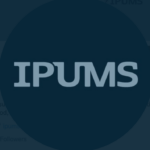 |
*New* Data Update: IPUMS CPS Adds February and March Basic Monthly Data
|
IPUMS CPS has added the February and March basic monthly data. Additionally, we have extended previously available supplement variables to cover additional years for the Volunteer and Civic Engagement Supplement, Food Security Supplement, and Tobacco Use Supplement. IPUMS CPS harmonizes microdata from the monthly U.S. labor force survey, the Current Population Survey (CPS), covering the period 1962 to the present. Data include demographic information, rich employment data, program participation and supplemental data on topics such as fertility, tobacco use, volunteer activities, voter registration, computer and internet use, food security, and more.
(read more)
|
 |
Keeping Up With UW-Relevant Federal Policy Updates and Federal Administration Research Policy
Opportunities to Publish Research Policy Briefs with the Association of Population Centers
|
CSDE is a member of the Association of Population Centers, and through them can offer you or your colleagues the opportunity to have new or forthcoming research that you want to share with policymakers, journalists, educators, or other non-academic audiences. The Population Reference Bureau (PRB), in collaboration with APC, is working to improve the dissemination of population and reproductive health findings. If you have peer-reviewed research on population dynamics, population health, or reproductive health that you would like to share with a broader audience in an easily digestible format, APC and PRB may be able to help. To learn how, visit their website and take a look at recent research policy briefs.
(read more)
|
 |
Preprint Opportunities through Association of Population Centers
|
CSDE is a member of the Association of Population Centers and through them can offer you and your colleagues access to their preprint publishing platform. Research Scientists, Postdoctoral affiliates and faculty are invited to submit to the APCA Working Paper Series which gathers and disseminates original population science research papers. These working papers are authored or coauthored by scholars who are faculty or postdoctoral affiliates of the Association of Population Centers (APC) population centers.
(read more)
|
 |
Applications Open for Panel Study of Income Dynamics (PSID) Summer Workshop (4/21/25)
|
This five-day workshop from June 16-20 in Ann Arbor, MI will orient participants to the content and structure of the core PSID interview, its special topics modules, and its supplemental studies, including the Child Development Supplement (CDS), the Transition into Adulthood Supplement (TAS), and the 2013 Rosters and Transfers Module. In addition we will discuss topics including the genomics data collected from children and adults as well as new data files which explain family relationships and demographic characteristics over time.
(read more)
|
 |
Center for Disaster Resilient Communities Seminar on Seattle’s Retrofit Program (4/22/25)
|
The Center for Disaster Resilient Communities (CDRC) is hosting a virtual seminar on Tuesday, April 22nd from 12 – 1 p.m. to hear Amanda Hertzfeld’s (Seattle Department of Construction and Inspections) lecture on “Fixing the Bricks: Developing Seattle’s URM Retrofit Program”. Seattle has over 1,000 Unreinforced Masonry (URM) buildings that pose a collapse hazard in earthquake. In this session, Amanda will discuss the recent adoption of Seattle’s code recognition for URM retrofits, updates to the city’s official URM database, statewide URM efforts, and existing and proposed incentives to make these life-saving improvements more affordable. Learn more and RSVP here.
(read more)
|
 |
Paul & Daisy Soros Fellowship Information Session (4/22/25)
|
The Paul & Daisy Soros Fellowship team will be hosting an info session for UW students on 4/22/25 at 12:00-1:00pm PT. Register to attend here.
The Soros Fellowship provides up to $90,000 in funding for graduate study to immigrants and children of immigrants in the United States. Hear directly from staff at the Paul & Daisy Soros Fellowships about the application process, eligibility requirements, and tips for crafting a strong application.
(read more)
|
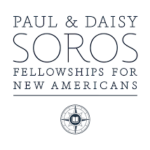 |
Max Planck Institute for Demographic Research Training Partnership Information Session (4/23/25)
|
CSDE collaborates with the Max Planck Institute for Demographic Research (MPIDR) in a doctoral training program called the International Max Planck Research School for Population, Health and Data Science (IMPRS-PHDS). This program is based in Rostock, Germany, but includes 12 doctoral programs in the U.S. and Europe. IMPRS-PHDS students engage with each other through either in-person or virtual workshops in Germany and around the world. Faculty mentors include members of the student’s own committee in their home institution, as well as MPIDR faculty and possible faculty from partner institutions.
Information about the program, the faculty, and partner institutions can be found here.
(read more)
|
 |
American College of Obstetricians and Gynecologists Foundation Welcomes Proposals (4/23/25)
|
The American College of Obstetricians and Gynecologists (ACOG) Foundation welcomes programmatic proposals from nonprofit organizations and research proposals from individual researchers working at nonprofits or institutions that advance gynecologic care and increase health equity and access. Full proposals are due to limitedsubs@uw.edu by 5:00 PM Wednesday, April 23, 2025. Proposals are due to the sponsor 6/13/2025 so you will need to have your materials in to the Office of Sponsored Programs by 6/4/2025 if given the go‐ahead by the Limited Submissions review committee.
(read more)
|
 |
Submissions Open for the 2025 APPAM Fall Research Conference (4/23/25)
|
Submissions are now open for research to be featured at the 2025 APPAM Fall Research Conference. This year’s conference theme is “Forging Collaborations for Transformative and Resilient Policy Solutions.” Submissions are being solicited from the following policy areas (sample included below):
- Education
- Employment and Training Programs
- Health Policy
- Innovations in Science and Technology
- Poverty and Income Policy
- Social Equity and Race
(read more)
|
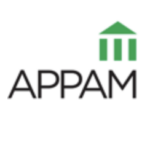 |
Apply for the UW Democracy & Civic Health Initiative (5/1/25)
|
The Democracy & Civic Health Initiative is pleased to offer a Catalyst Fund that awards small grants to encourage the development of new research innovations for activities and projects that seek to revitalize civic health and bolster democratic institutions across the country. The purpose of this grant is to support faculty members and PI-eligible research staff to develop preliminary data or proof-of-concept needed to pursue follow-on funding or additional concept development to scale one’s efforts.
(read more)
|
 |
Apply for William T. Grant Scholars Program (5/7/25)
|
The William T. Grant Scholars Program supports career development for promising early-career researchers. The program funds five-year research and mentoring plans that significantly expand researchers’ expertise in new disciplines, methods, and content areas.
Applicants should have a track record of conducting high-quality research and an interest in pursuing a significant shift in their trajectories as researchers. We recognize that early-career researchers are rarely given incentives or support to take measured risks in their work, so this award includes a mentoring component, as well as a supportive academic community.
(read more)
|
 |
CSDE NIH Grant Writing Summer Program (5/9/25)
|
The CSDE Development Core is once again hosting its annual Grant Writing Summer Program (GWSP) to assist scholars in preparing applications to the National Institutes of Health (NIH). Applications are now open for this program! More info is available here, and the application page here. Make sure to read all the FAQ’s – there’s lots of good info in there! Past participants report great success, and lots of support and even fun along the way.
(read more)
|
 |
Apply for Harry Bridges Center WA State Labor Research Grants (5/22/25)
|
Each year, the Harry Bridges Center for Labor Studies seeks proposals for policy-oriented research directly relevant to policymakers in Washington State. All University of Washington faculty, full-time lecturers, and UW graduate students sponsored by a faculty member are eligible to apply.
Up to $15,000 is available for each grant. Depending on available funding, awards may include a tuition waiver for graduate employees. Please note this waiver does not extend to students in fee-based programs.
(read more)
|
 |
*New* York University Centre for Refugee Studies 2025 Summer Course – Climate Migration Futures: Shaping the Research Agenda for 2050 (Application Deadline 5/25/2025)
|
For over two decades, York University’s Centre for Refugee Studies has run an internationally acclaimed, non-credit professional development Summer Course that brings together practitioners, policy makers, and researchers to learn together about the most pressing forced migration and refugee issues.
All participants who complete the full course receive a York University Centre for Refugee Studies Summer Course Certificate. Learn more here.
(read more)
|
 |
ICPSR Summer Workshop on Applied Methods for Studying Structural Racism, Sexism, and Other Systems of Oppression (5/26/25)
|
The Health and Medical Care Archive, funded by the Robert Wood Johnson Foundation, is sponsoring a workshop during the annual ICPSR Summer Program in Ann Arbor, Michigan. Be sure to apply for this workshop in advance––enrollment is capped at 25 participants. Apply by 5/26/25.
(read more)
|
 |
IMPRS-PHDS: Call for applications (5/30/25)
|
CSDE collaborates with the Max Planck Institute for Demographic Research (MPIDR) in a doctoral training program called the International Max Planck Research School for Population, Health and Data Science (IMPRS-PHDS). This program is based in Rostock, Germany, but includes 12 doctoral programs in the U.S. and Europe. CSDE has one IMPRS-PHDS fellowship application slot available to current CSDE Trainees. The fellowship funding will support a one quarter research stay at the MPIDR any time between July 1, 2025 and June 30, 2026.
Information about the program, the faculty, and partner institutions can be found here.
Applications are due to CSDE by Friday, May 30. Apply here.
(read more)
|
 |
Lynde and Harry Bradley Foundation Grants (Rolling)
|
The Bradley Foundation is a private grantmaking foundation that honors the principles and example of its namesakes, Lynde and Harry Bradley, by pursuing a mission to restore, strengthen, and protect the principles and institutions of American exceptionalism. The foundation has a rolling proposal process around grants for its Constitutional Order and Informed Citizens initiatives. Projects should have budgets between $25,000 and $200,000.
(read more)
|
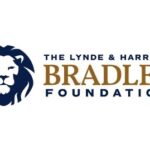 |
Sign up to join the Early Career listserv!
|
We invite early career faculty affiliates to join our new mailing list, csde_earlycareer. Among other things, this is the way to find out info about our quarterly Early Career Affiliate happy hours, and you won’t want to miss those! These will be a great way to meet up with other junior scholars in a fun and casual atmosphere over snacks and drinks.
(read more)
|
 |
|
|



